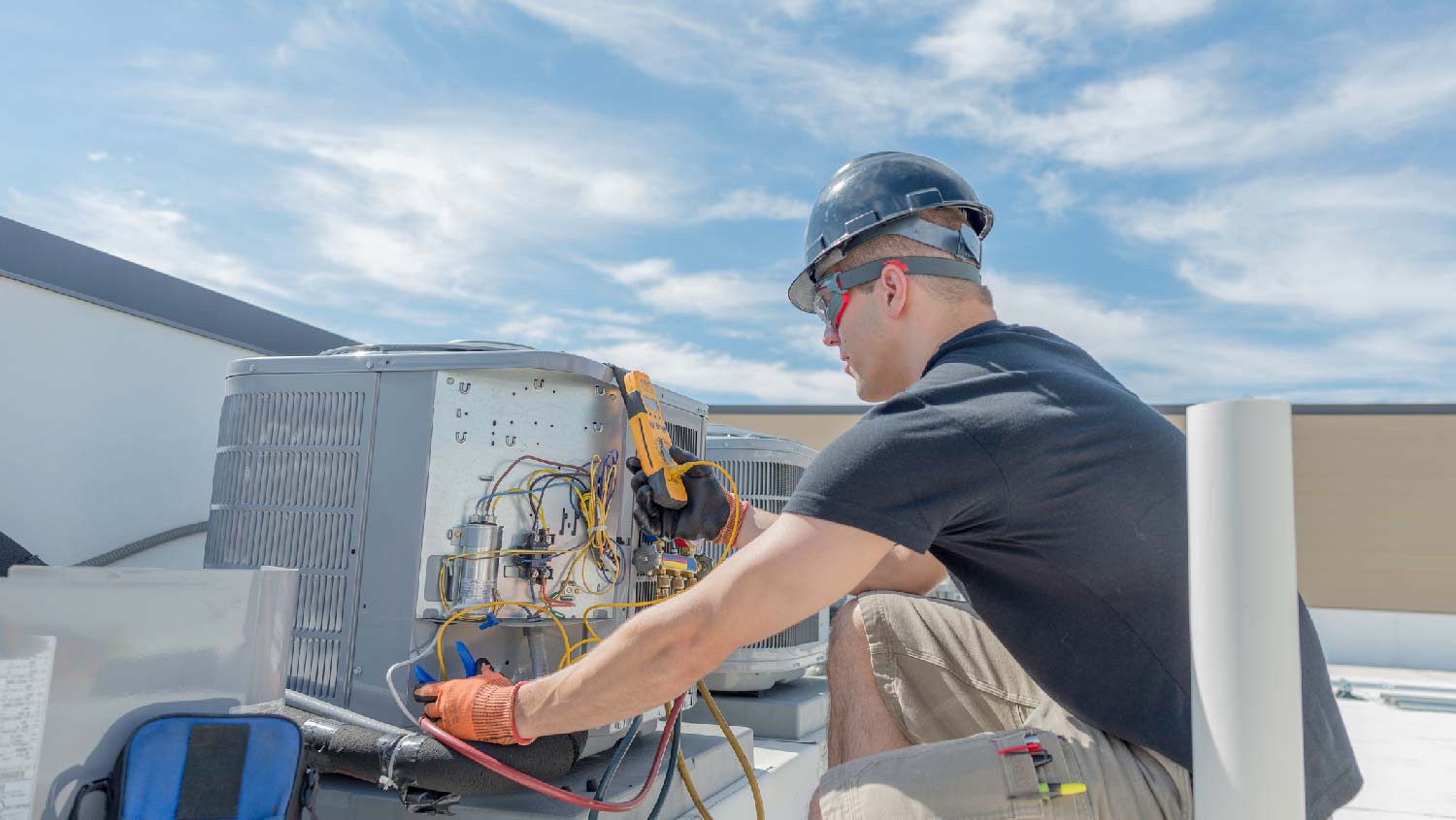
What you’ll pay for furnace repairs depends on many factors, including what parts are malfunctioning, where you live, and even the time of day. Here’s a breakdown of what can go wrong with your furnace and the cost to fix those issues.
No need to sweat over a full drain pan


AC units have a drain pan to catch water that naturally passes through the system.
A clogged drain pipe can prevent water from leaving the drain pan.
Damage to the drain pan or improper installation can also cause water to fill up.
Leaking refrigerant may cause a full drain pan and requires immediate attention.
It’s best to leave AC drain pan repairs to a pro for a quick, safe fix.
You may not give a second thought to your AC system’s drain pan—that is, until you pass by and notice an accumulation of water around the AC unit. While the drain pan can safely hold some of this water, you need to call a pro to find out the cause of the pooling before it leads to costly damages to your AC unit and your home or yard. Here are five common causes of an AC pan full of water, plus the next steps you can take to get your AC running like new again.
The drain pan is designed to catch extra water that can pass through the AC unit as it pulls in air to cool. This water then drains away from the AC unit and the home. But if the drain pan is damaged from wear and tear or corrosion, it may not drain water away appropriately. If you notice rust, corrosion, or other physical damage in the drain pan, call an AC repair expert to replace it.
Dust, debris, and corrosion can all clog the drain pipe, which is responsible for draining water away from the pan. If there is any built-up substance in the pipe, it can prevent the excess water from draining properly. This is the most common cause of an AC pan full of water (and luckily, it’s a quick fix for a pro). A clogged drain pipe can cause damage to other parts of the AC system and lead to water damage around your home.
Cooling systems have two types of AC coils: evaporator coils and condenser coils. As warm air is pulled in over the evaporator coils, the refrigerant inside absorbs the heat before moving out toward the condenser coil. But if your AC unit is freezing up, the ice on the coils can drip, causing an AC drain pan full of water.
Evaporator coils can freeze if the air filters in the AC unit are dirty, if there’s dust building up on the coils, or even if something is blocking the airflow from vents around the house. Make sure to have a pro clean the AC coils in your unit once per year, and change your air filters at least every three months to minimize the risk of a frozen evaporator coil.

Sometimes, just one small part of an AC unit in the wrong place can cause an AC pan full of water. Even the drain pan can be placed incorrectly, causing water to fill up. The pan itself needs to angle toward the drain outlet so that the condensation that naturally occurs in the AC system can drain away. If the original installer placed the pan at the wrong angle, water will build up in the pan rather than drain
Before you hire HVAC pros to install or repair your cooling system, check that they are licensed and insured and ask about their certifications. These factors can help you choose a well-qualified HVAC pro who can properly install an AC unit or new parts.
Remember those frozen evaporator coils we talked about? As it turns out, frozen evaporator coils can be a sign of a refrigerant leak. But even if the evaporator isn’t frozen, leaking refrigerant or low refrigerant levels can cause water to fill up the AC pan.
Don’t attempt to clean up, fix, or change out refrigerant on your own because refrigerant can be flammable and toxic, according to the U.S. Environmental Protection Agency. Instead, call in a pro ASAP if you suspect a leak.
Whether a part of the AC system was improperly installed or the drain pan has become corroded or damaged over time, it’s best to have a local air conditioning repair company inspect the system, identify the cause, and make a swift repair. For one, if there’s a refrigerant leak, a pro needs to handle this issue quickly because exposure to refrigerants poses serious health risks, and refrigerant chemicals can be highly flammable.
Even if there’s no refrigerant leak, you don’t want to waste time trying to find and solve the problem yourself. A trained pro can identify and repair the issue quickly to avoid further—and more expensive—damage to your cooling system.
From average costs to expert advice, get all the answers you need to get your job done.

What you’ll pay for furnace repairs depends on many factors, including what parts are malfunctioning, where you live, and even the time of day. Here’s a breakdown of what can go wrong with your furnace and the cost to fix those issues.

Factors such as labor and parts impact the final price of repairing a window AC unit. Learn all of the costs associated with window air conditioner repair.

The cost of a new AC unit depends on the size and type. Our guide breaks down AC replacement cost factors so you can decide which option matches your budget.

This calculator will help you determine what size furnace you need to keep your home toasty warm this winter.

Trying to choose between a MERV10 versus a MERV12 air filter? Compare filtration, airflow, and allergy protection to find the right fit for your home.

This guide goes over the pros and cons of radiant floor heating, an energy-efficient alternative to traditional radiators and forced air heating systems.